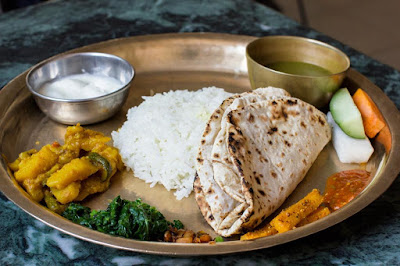A LENTEN PILGRIMAGE Rev. Fr. K M George
"He who was sent from the Father's heart to the (heart of) creation, who dwelt in the womb of the blessed Mother full of grace..."
(from a Sedra prayer of Great Lent)
We are familiar with the phrase "the heart of the matter".
It is the crux, the essential point of something. In most cultures the heart is given great prominence as the centre of deep human emotions. We continue to use attributes like hearty and heartfelt to indicate the depth of one's sympathy and sincerity, and 'heartless' for the contrary.
Yet we know that the heart is not physically at the centre of the human body nor does it have anything to do with our emotions, feelings and other psychological states.
The mystery of the incarnation of Jesus Christ is a heart to heart matter. The Son is eternally begotten from the heart of the Father, and historically begotten from the heart of creation, from the womb of a Virgin, the womb of created reality. The heart and the womb signify the mystery of life.
When there is no heart, there is no emotion, no compassion, no empathy and therefore no human life can survive. When there is no womb it is the end of human life.
Our consumerist culture, in fact, denies both the heart and the womb though it pretends to promote both. All its propaganda and machinations, all its flamboyance and seductive charm alienate us from genuine human qualities of the heart and the womb.
Lent is a time to perceive the "the heart of the matter", to distinguish between the essential and the non-essential.
How much food we need to lead a decent life with consideration to others who are deprived of sufficient food?
How many different kinds of food we need to lead a healthy and happy life?
To what extent are we sharing our food with those in need?
These are some of the simple questions we need to ask.
Our global consumerist culture would never encourage us to ask these questions. Instead it would give us the message that we need more and more, that we need many different types of food, and expensive exotic food too to have a happy and respectable life. In my little town of Kottayam in the far corner of India we can buy kiwi fruits imported from Australia and grapes from California. Of course, only rich people can afford to buy them. Still the question is: do we need them for a decent life in a place where an enormous variety of local fruits are available. We have mangoes, bananas of all kinds, papaya, guava, jackfruit, passion fruit, chikku, pineapple and the list goes on.
Food stands as a symbol for all our ways and styles of life.
The Lenten question is:
what is the heart of our living as Christians, as human beings,
as neighbours, as citizens?
How do we sustain the womb of creation from miscarriage?
Our present day ecological crisis as well as our genetically modified products slowly lead us to sterile wombs, both human and non-human.
In the Lent we are called upon to train ourselves from overuse and selfish exploitation of nature's resources by reducing our excesses in consideration to those in need, and to the future generations. The resources of our planet earth are desperately limited.
The question again is: how much do we need to have a reasonably good life?
Jesus Christ our Lord says:
“Therefore, I tell you, do not worry about your life, what you will eat or drink; or about your body, what you will wear. Is not life more than food, and the body more than clothes?”
(Matthew 6:25).



No comments:
Post a Comment